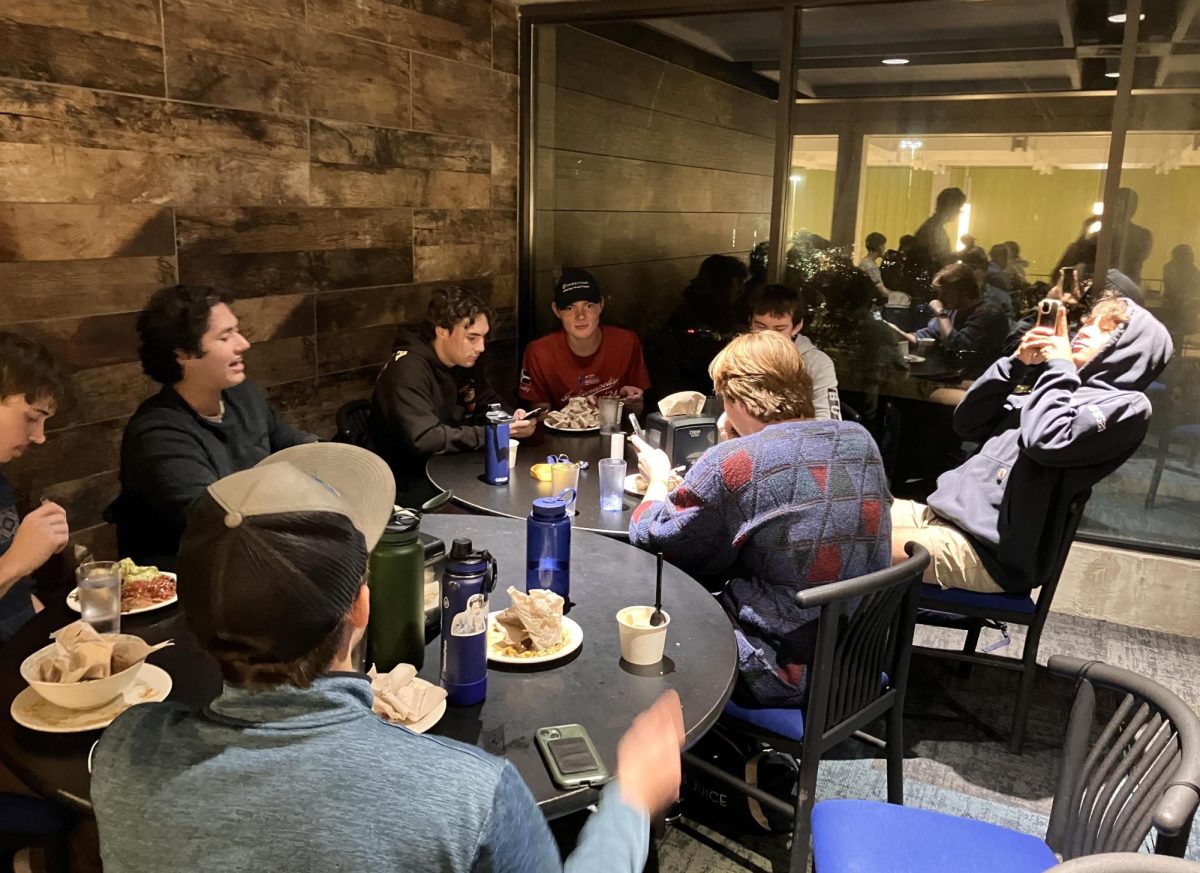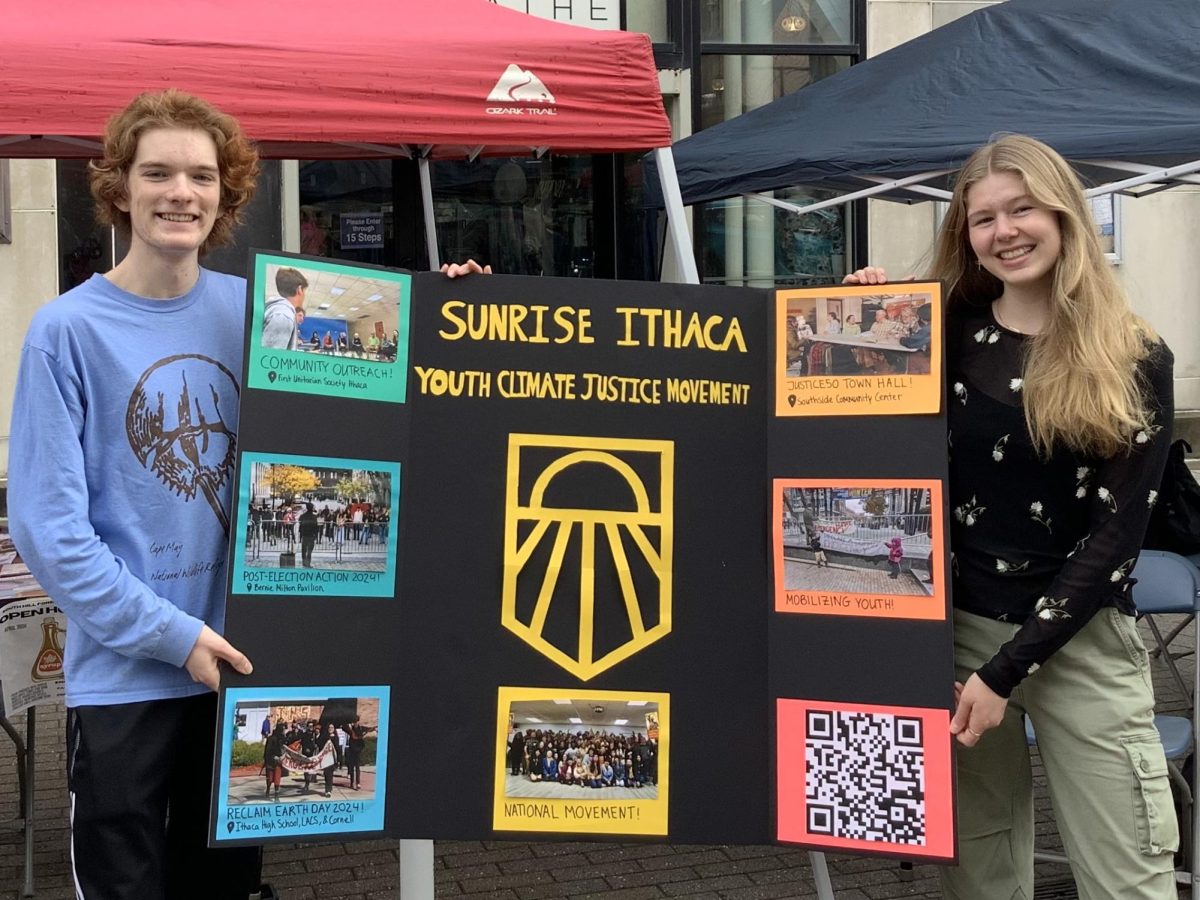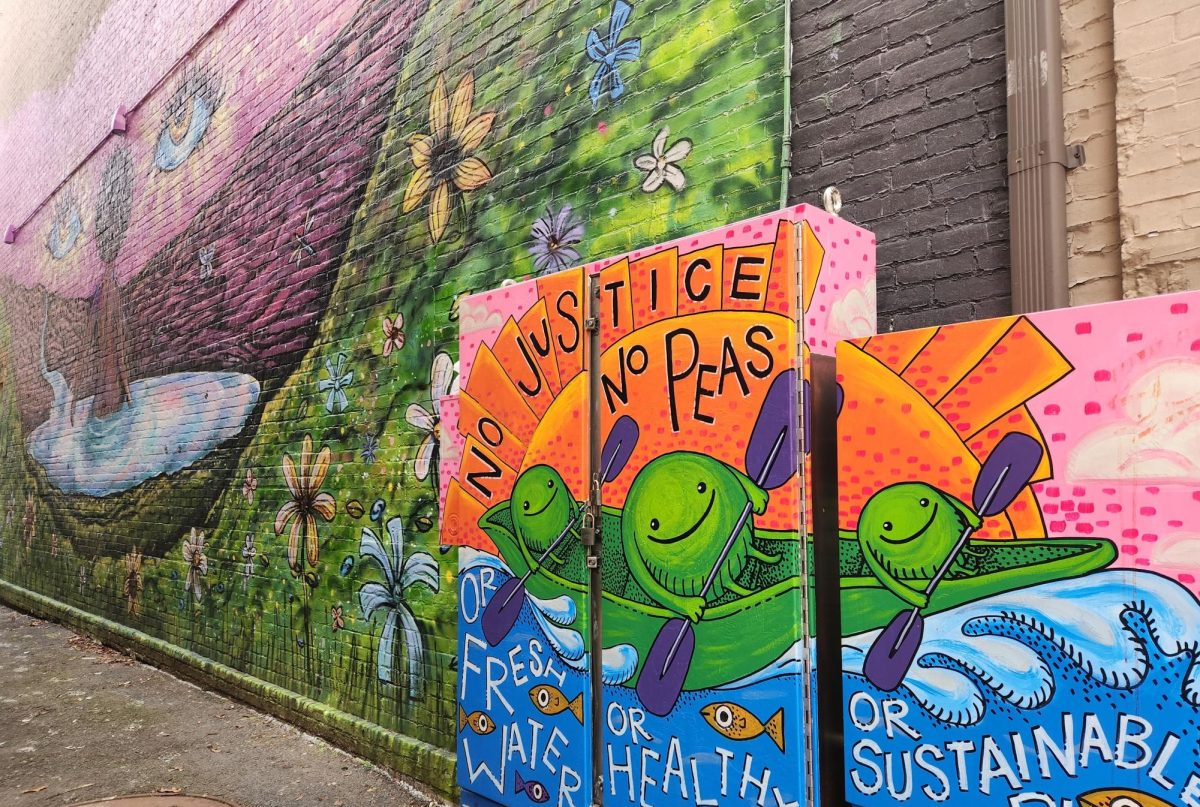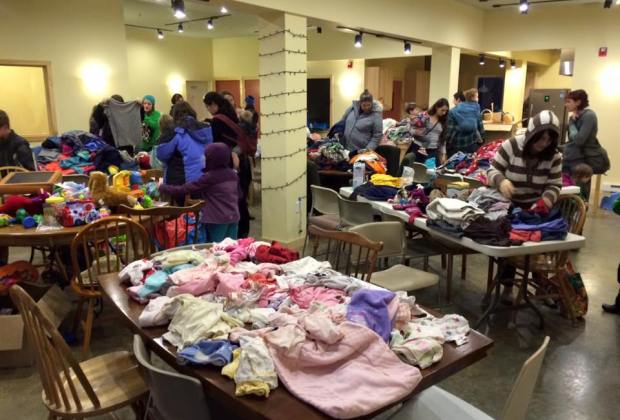
“We have this saying in Japan,” said Yayoi Koizumi. “It is called Mottainai (もったいない), it means ‘it’s too wasteful’ or ‘what a waste!’”
Koizumi, the founder and coordinator of Zero Waste Ithaca and an administrator of a Buy Nothing group in Ithaca, brought up mottainai because it embodies the practices of reducing, reusing, recycling, and repairing.
At a United Nations session on Climate Change, Kenyan environmentalist Wangari Maathai popularized the word as an environmental protection slogan.
In Maathai’s statement at the session she said, “Even at a personal level, we can all reduce, re-use and recycle, what is embraced as Mottainai in Japan, a concept that also calls us to express gratitude, to respect, and to avoid wastage.”
These types of grassroots movements are getting traction worldwide, building gift economies, both globally and locally.
What is a gift economy?
Gift economies are grassroots efforts to provide people with sustainable options for how they can get, and get rid of, items. These groups connect community members through acts of exchanging second-hand items without any price tags.
Through this resource, local communities can reduce their waste and resist environmentally harmful practices of overconsumption.
Some groups label themselves as “gift exchanges” or “gift economies,” like Ithaca Families Gift Economy and the Gift Exchange for the Trumansburg Community (GETC). Others go by “Buy Nothing” groups, a term coined by the Buy Nothing Project, which has reached over 6,500 communities and at least 4.25 million people as of July 2021.

Most exchange communities are run through Facebook pages where members can post items they are looking to give away or they can even request needed items from others.
“I often am posting to give stuff,” said Jess Baker, a moderator of GETC. “One of the big things for my interest in the group is that when you have young kids they’re going through so many developmental stages and so you use this thing for like three months and then you need something different… It just seems so silly to me, especially since lots of items are plastic, to just be purchasing and purchasing and purchasing.”
Koizumi, founder of Zero-Waste Ithaca, said that a lot of her group’s members are involved with Buy Nothing groups.
“Everybody has something in this country,” said Koizumi. “It might not be useful to you, but it might be useful to somebody else. If it’s not loved it’s time to give it to somebody else.”
How does this impact the environment?
Approximately 230 million tons of municipal garbage is created each year, the vast majority of which ends up in landfills that pollute the water and air of surrounding areas.
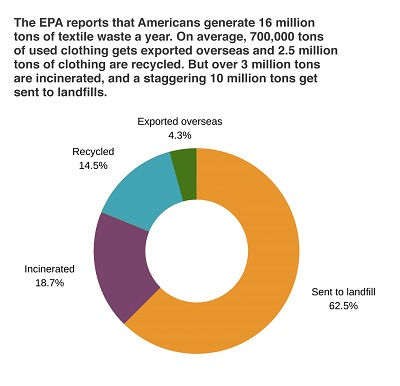
Landfills are detrimental to the environment as well as the health of surrounding communities and the alternative waste treatment process of incineration is not any less harmful. Plastic takes anywhere from 100-400 years to fully break down in a landfill environment, meaning that the landfills that exist already, along with their accompanying hazards, will be around much longer than any of us.
Tompkins County residents may not be feeling the impacts of landfills as much as other areas since, according to Koizumi, the county sends garbage to Ontario County Landfill.
“I wonder if that’s the reason why… when we talk people talk about climate, in Ithaca people just tend to talk about reducing emissions,” said Koizumi. “They don’t talk about solid waste, even though solid waste is a major contributor to climate change.”
According to the United States Environmental Protection Agency (EPA), the most effective way to lessen waste is to not create it in the first place.
Local organizations, like GECT, buy-nothing groups, and gift economies make it easier, and more accessible, to adopt a second-hand shopping mindset. They also help reduce the overwhelming amount of things going to second-hand stores.
“We are inundated with stuff,” said Koizumi. “The thing is, places like the Reuse Center, or other thrift stores, can’t handle the volume of stuff that is in the second-hand market…During the move out period of students back in May they had to stop taking items, there was just so much stuff and a lot of items that go to thrift stores go to the landfills.”
Baker noted that she tries to give things away through the gift exchange instead of taking it to a thrift store, partially due to the uncertainty about what will end up in a landfill, but also because “a lot of people are in need of things that don’t have a price tag on it.”
Community Action
We are living in a consumer society in which people are encouraged to buy based on what they want rather than what they need. Hyper-consumption is the result of this, “leading to severe resource depletion and environmental degradation.”
Buying habits and waste are not individual issues, and individual action alone will not have a big enough impact to fix the effects of excessive waste. However, group efforts give people the opportunity to join a larger, more impactful movement towards zero waste.
“When you realize you don’t have to be like that it’s kind of liberating,” said Koizumi.
Climate change, environmental disasters, and issues like overconsumption can feel out of our control. Grassroots movements have the potential to change attitudes and behaviors around how we buy and dispose of items, by bringing people together to make a collective action.
“It’s something that I hope to pass on to my kids too,” said Baker. “If you can reuse it, if you can be sustainable then you should because, yeah, we’re all consumers but the earth needs us to not be.”


